Turkey Is Searching for Her Heart
By Akin Olgun
When you try to explain a specific matter about Turkey you need to rewind to the past. When you try to explain what happened in the past, you need to travel even further back, rewind back even more… and this goes on and on, endlessly! The past and the history of the past will always be the reason for problems being experienced today. This before-and-after chronology is the most correct way to explain how systematically these problems occur.
In Turkey, children are being killed today, women have been killed for years, and young people have been killed for decades. Statistics do not convey the true feeling of the reality. The continuous release of mortality statistics on children and women stay only as mathematical numbers. The faster the mortality rate increases, the more lives and their stories are left abandoned in the well of history as if they never existed.
Today, the world’s tragedies are presented to us in numbers, and reports are prepared to reach out to the sensitivity of humanity and civilization. In my opinion, the word insensitivity would be preferable, as these numbers don’t draw in our minds the brutal reality. Numbers about miseries like childhood malnutrition and death, for example, do they manage to touch our hearts? Instead, those calls for help, the advertisements and all those penny boxes, appear to operate a heart laundering mechanism. Our sensitivity is measured by our hearts stuffed in our pockets. Perhaps it is we who need help. We, who do not feel any discomfort from our hearts and sensitivities being turned into pennies dropped into boxes. Perhaps the problem is the perspective towards the part of the world that has been forced to rely on the crumbs from the Western civilizations and therefore a help-oriented dependency rather than a substantive solution.
The screams from the wells in which the tragedies of humanity are left abandoned do not call for help but for a solution. They don’t want to become dependent in the well; they demand to be taken out, and there is a great difference between the two. It’s not the statistics that matter but the stories of the people. The only reality that would give us the feeling of what has been happening is the stories of people, especially the stories of those we’ve never met, those we’ve never seen, those we’ve never heard.
Rozerin was a young Kurdish girl, a Turkish citizen. She was a photography enthusiast. What is left behind her are the pictures she took, a photo of her showing her photographs to younger children and a video of her reading a poem. “On Living” was the poem she read, by Nazim Hikmet Ran. Nazim was a dissident poet whose work had been translated into more than 50 languages, and who couldn’t return to his native Turkey and died in exile. Rozerin read On Living from a white piece of paper on her hand, her voice trembling:
“Living is no laughing matter:
you must live with great seriousness
like a squirrel, for example–
I mean without looking for something beyond and above living,
I mean living must be your whole occupation.”
Rozerin is no longer alive. She was shot in the head by a sniper on the Sur district of Diyarbakir. She wasn’t the only child who was shot as history goes way back. Mehmet Hidir Tanboga was shot by a sniper on August 7, 2015; he was fifteen years old. Sait Nayici was shot on October 10, 2015; he was sixteen. Zeynep Taskin was seventeen, Selman Agar was sixteen.
They were all killed by snipers from the Turkish government. According to a report from The Human Rights Foundation Of Turkey, (HRFT) between December 11, 2015 and January 8, 2016 alone, 162 civilians lost their lives: 29 of these were women and 32 were children. These numbers, do they manage to touch our hearts?
The Turkish government’s ruling out of the peace process with the Kurdistan Workers’ Party (PKK) started the conflict. Now it is spreading to the cities where civilians live. The Kurdish resistance’s demand of more power for local authorities and self-governance is rapidly and intensively growing because of the Turkish government’s brutal intervention. Over the last two months, in some districts where there is a government-imposed curfew, there are corpses of people rotting in the streets.
Taybet Inan was a 57-year old mother with 11 kids. She lost her life in open fire by the security forces in Silopi. Every time her children tried to take their mother off the street, they failed because of the open fire. The authorities told them that they could go out waving white flags. But could they? No. Taybet Inan’s husband, Halit Inan, said, “I called out to her, she was wounded. I couldn’t go out on the street, so I threw her a rope, asked her to hold it but because of her wounds she couldn’t. She was looking at me and I was looking at her. My wife was an underdog.”
They managed to take away their mother’s remains seven days later. And it was true, Taybet Inan was an underdog. She wasn’t a terrorist. Just like seven-month pregnant Guler Yanalak, who was shot in her belly by the Police Special Operation Unit. They appeared at her door and opened fire. She and her unborn child are no longer alive. Just like Melek Aydin whose life was taken by a cannonball hitting her house. Just like the mother of five, Selamet Yesilmen who was shot in front of her house, and just like tens of others.
The Turkish media reports the news on dying civilians in the conflicts between Turkish security forces and Kurdish militias in the Kurdish cities (referred to as “the east and southeast regions of Turkey”) to the “west region of the country” as: “the terrorists are being wiped out from the region.” This projection plays a great role in civil society’s approval of civilian deaths. Turkey is now a country stuck between President Recep Tayyip Erdogan’s demand to become a one-man ruler of a presidential government and the Kurdish people’s demand for more power for local authorities and self-governance. For a very long time, there has been an ongoing threat policy based on the suggestion that the only way to resolve this conflict is by establishing a presidential government, and that if all sides do not agree with this, Turkey will never be free from this chaotic situation. “Either you are on the government’s side or with the terrorists. Choose your side,” Prime Minister Ahmet Davutoglu responds to anyone who opposes this argument. The following remark from President Recep Tayyip Erdogan’s got an immediate response from the international media and became known as the “Hitler remark.” The Turkish president said, “It is not true that a presidential system cannot exist in unitary states…. There are examples of this around the world…. There are examples in the past, too. When you look at Hitler’s Germany, you can see it there. You can see examples in other countries as well.” His speech goes well with a famous Turkish saying, “Whatever the thoughts of the dervish, so are his formulas,” meaning: one’s thoughts are revealed in one’s speech.
A look at what happens to those who ask for peace helps to see the current political climate. The president of the Diyarbakir Bar Association, Tahir Elci, who was seen as a peace envoy in the public eye, was caught between a gunfight between the police and Kurdish militias in Sur, a district of Diyarbakir; he died after delivering a press statement about a UNESCO-listed cultural-heritage minaret, damaged in clashes just days before. Defender of the peace, Tahir Elci, had said on a television program a while before, “the PKK is no longer a terrorist organization” and added that the solution was peace. From then on, he was targeted by the pro-government media and warmonger press. A prosecutor went to the field to investigate the crime scene, but he was not allowed to do so, presumably because of ongoing clashes. On the ground where Tahir Elci laid were hundreds of spent bullets.
The Turkish-Armenian editor, journalist and columnist Hrant Dink was shot in the back nine years ago, on January 19, 2007, after a similar hate campaign. His final article was titled, “A Dove’s Skittishness in my Soul.” He is commemorated every year in front of his newspaper AGOS, where he was shot. His 17-year old assassin was quickly arrested, but it is still unclear whose hands are stained with his blood. That’s why his daughter Delal Dink said, “My father is still lying on the same pavement; take his hand so he can rise again,” to show her reaction to his unsolved murder of nine years.
On November 28, 2015, another intellectual’s body was lying on a pavement, that of the Kurdish peace envoy, Tahir Elci. He was shot from behind, and just like Hrant Dink, he laid on the ground, face down. Tahir Elci’s daughter Nazenin said, “During the funeral I lost myself, so people tried towing me back, pulling my arms. At that point, a girl in tears stopped me, held my shoulders and cried: “My dad was murdered as well.” I stopped crying, came back to my senses,” the brutal truth that laid beneath her unrefined words felt like a cold breath blown upon every face and left one petrified.”
When you start to explain a certain matter, you must always go back to the previous ones. This is long, but it’s the only way to explain today and what’s to come next. This is why there is the feeling of an endless nightmare.
Since September 2014, the dissident media has been claiming that the General Staff has been preparing an action plan stamped top secret and named “The plan of collapse act.” The peculiar character of what’s been happening in the Kurdish cities over the last two months supports this claim and makes one’s blood run cold. The figures in this plan match the real ones: “Between 10,000 to 15,000 destructions; approximately 8,000 wounded; between 5,000 to 7,000 arrests; and in small and large bombed establishments, between 150,000 to 300,000 displacements.” This match and the government’s articulation of a “Sri Lankan style massacre” should be taken seriously and pondered upon by those who follow Turkish politics from abroad.
A group of 1,128 individuals from 90 Turkish Universities, who have named themselves the Academics for Peace, signed a petition calling for a truce and an end to the ongoing conflicts and civilian deaths. They have shared the petition with the public. The president has claimed that these academics have a hidden agenda and accused them of being “supporters of terror” and “supporters of mandatary.” Academics have been detained. An investigation has been started against them. The office doors of academics have been marked with red crosses, and they have received death threats. There is now a McCarthy climate in Turkey, in which the definition of asking for peace has evolved into treason.
Editor’s Notes: Akin Olgun is a Turkish writer and journalist (Twitter: @akinolgun).
Related Articles

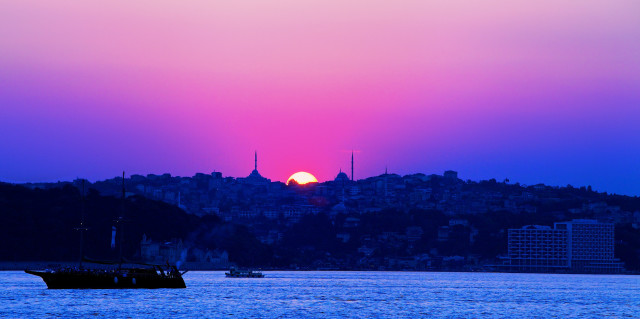
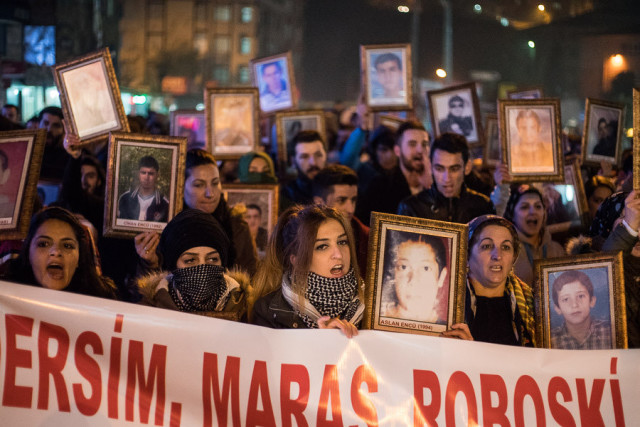
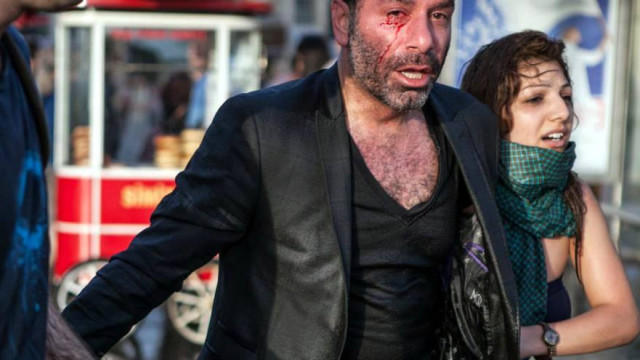
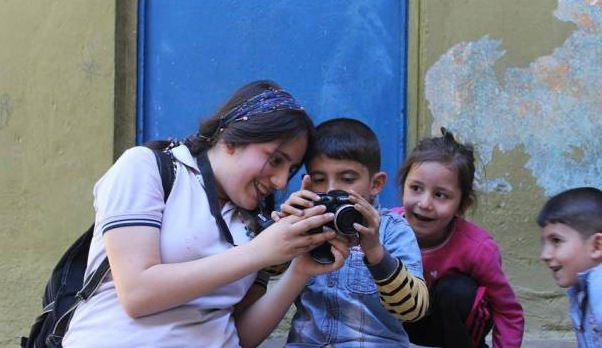
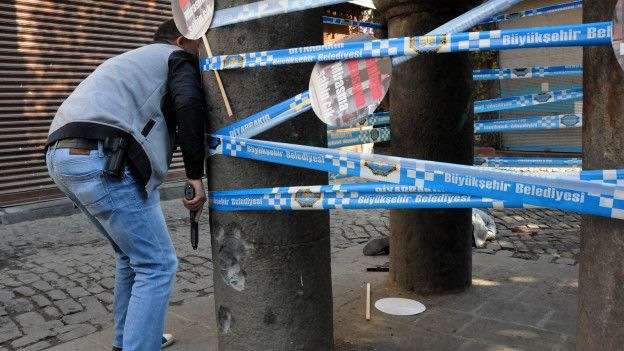
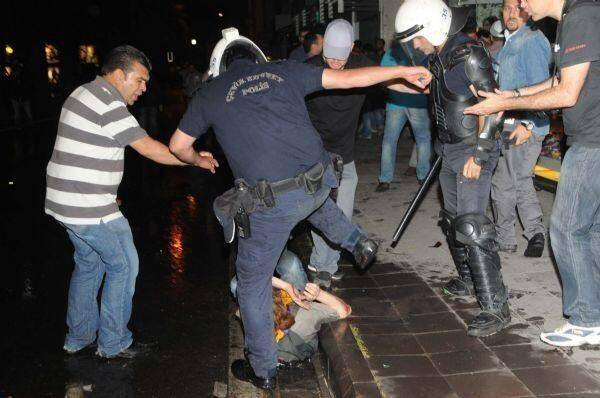
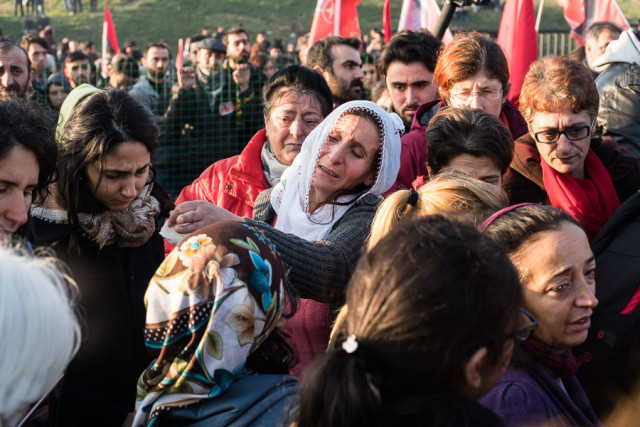
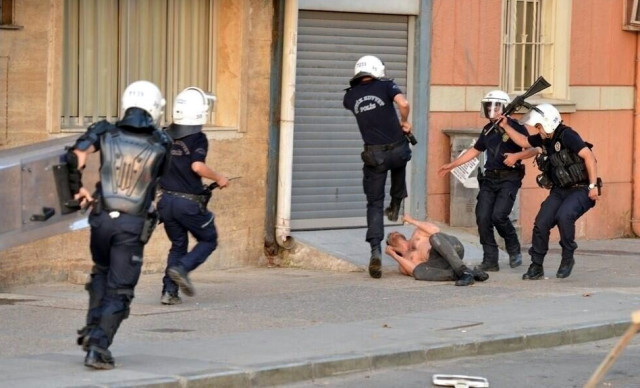
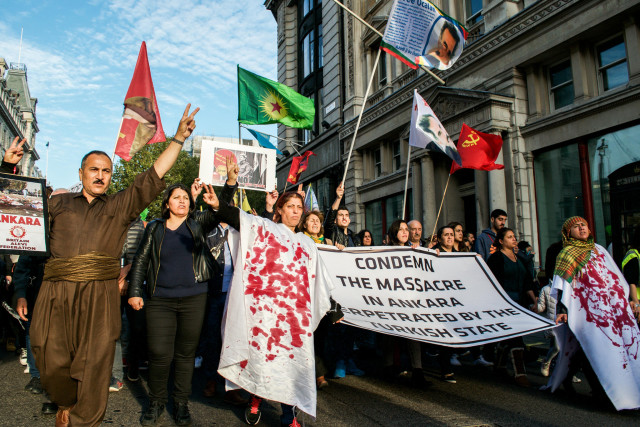
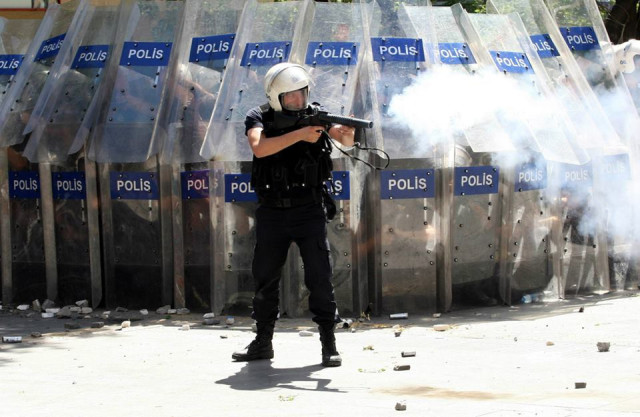
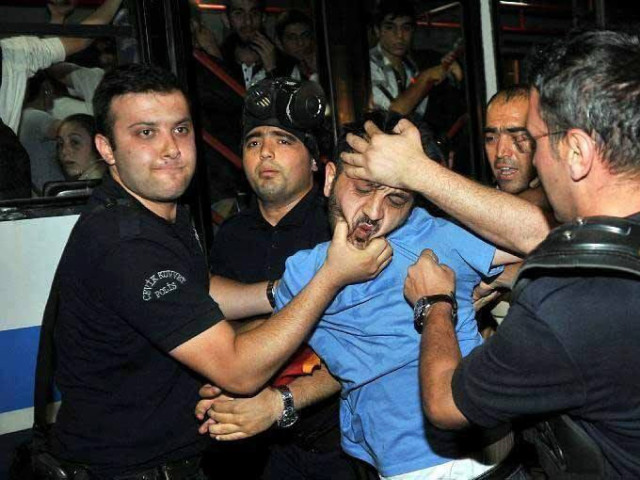
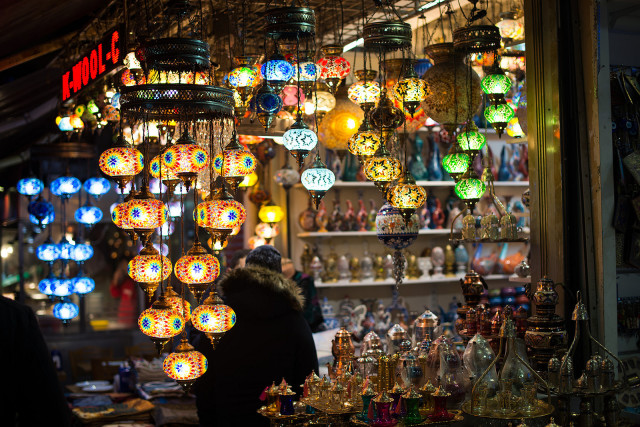











You must be logged in to post a comment Login